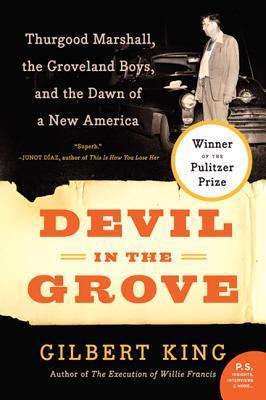IN FEBRUARY 1949, with the volume of criminal cases coming through the NAACP threatening to paralyze the LDF, Marshall issued a memorandum that established three rules to be applied “to the types of criminal cases we accept . . . (1) That there is injustice because of race or color; (2) the man is innocent; (3) there is a possibility of establishing a precedent for the benefit of due process and equal protection in general and the protection of Negroes’ rights in particular.”
Welcome back. Just a moment while we sign you in to your Goodreads account.


